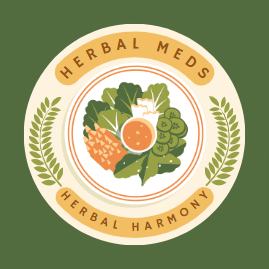As the quest for natural and effective health solutions continues to grow, **herbal medicines** have emerged as a prominent option for those seeking alternatives to conventional treatments. Drawing on ancient practices and backed by modern scientific research, herbal meds are gaining recognition for their potential benefits in supporting overall well-being. This article delves into the world of herbal medicines, exploring their advantages, the science behind them, and their evolving role in contemporary health care.
### **The Heritage of Herbal Medicine**
Herbal medicine, or phytotherapy, involves using plant-based substances to prevent, treat, or manage health conditions. This approach has deep roots in various cultures, including Traditional Chinese Medicine (TCM), Ayurveda from India, and indigenous practices around the world. These traditions have long recognized the therapeutic potential of plants, and their wisdom is now being validated by modern science.
### **Advantages of Herbal Medications**
Herbal medicines offer several benefits that appeal to today’s health-conscious consumers:
#### **1. Natural Composition**
Herbal remedies are derived from plants and often contain a range of bioactive compounds. These compounds can work synergistically to support health in a way that isolated synthetic drugs may not. For example, the combination of flavonoids, terpenes, and other phytochemicals in herbs can provide comprehensive benefits beyond what a single compound might achieve.
#### **2. Holistic Health Support**
Many herbal medicines aim to support overall well-being rather than targeting specific symptoms. For instance, adaptogens like ashwagandha and rhodiola are used to help the body adapt to stress and enhance overall resilience. This holistic approach can be beneficial for individuals looking to improve their general health and quality of life.
#### **3. Fewer Side Effects**
Compared to some pharmaceuticals, herbal remedies are often perceived as having fewer side effects. This is because they tend to work in harmony with the body’s natural processes. However, it’s important to note that “natural” does not always mean “safe,” and some herbs can have side effects or interact with other medications.
#### **4. Personalized Treatment**
Herbal medicine offers the flexibility to tailor treatments to individual needs. Practitioners can create customized formulations based on a person’s unique health profile, preferences, and responses to treatment. This personalized approach can enhance the effectiveness of the therapy.
### **Scientific Validation of Herbal Medications**
Modern science has begun to uncover the mechanisms behind the benefits of herbal medicines. Here’s how:
#### **1. Phytochemical Research**
Plants contain a diverse array of compounds known as phytochemicals, which contribute to their medicinal properties. For example, the antioxidant effects of polyphenols in green tea and the anti-inflammatory properties of curcumin in turmeric have been extensively studied. Research on these phytochemicals helps to explain how herbal remedies exert their effects.
#### **2. Clinical Trials**
Clinical trials and studies are increasingly focusing on herbal medicines to assess their efficacy and safety. For instance, research has demonstrated that ginseng may improve cognitive function and energy levels, while studies on St. John’s Wort have shown its potential in treating mild to moderate depression. These trials provide valuable evidence to support the use of herbal remedies.
#### **3. Standardization and Quality Control**
To ensure that herbal products are both effective and safe, standardization and quality control are essential. This involves verifying that products contain consistent levels of active ingredients and are free from contaminants. Reputable herbal product manufacturers adhere to these practices to deliver high-quality remedies.
### **Popular Herbal Medications and Their Uses**
Several herbal remedies are well-known for their health benefits:
#### **1. Echinacea**
Echinacea is commonly used to support the immune system and help prevent or shorten the duration of colds. Research suggests that it may enhance the body’s immune response and reduce inflammation.
#### **2. Ginger**
Ginger is widely recognized for its digestive benefits. It can help alleviate nausea, reduce inflammation, and support digestive health. It’s often used for conditions like motion sickness and digestive discomfort.
#### **3. Ginkgo Biloba**
Ginkgo biloba is known for its potential cognitive benefits. It is believed to enhance blood flow to the brain, which may improve memory and cognitive function, particularly in older adults.
#### **4. Valerian Root**
Valerian root is used for its calming effects and is often taken to improve sleep quality and manage anxiety. It is thought to work by increasing the levels of certain neurotransmitters in the brain that promote relaxation.
### **Integrating Herbal Meds into Modern Health Care**
Incorporating herbal remedies into health care requires thoughtful consideration:
#### **1. Consult Health Professionals**
Before starting any herbal regimen, consult with a healthcare provider, especially if you have existing medical conditions or are taking other medications. Some herbs can interact with pharmaceuticals or have contraindications for specific health issues.
#### **2. Select Quality Products**
Choose herbal products from reputable sources that adhere to rigorous quality control standards. Look for products that provide information about the concentration of active ingredients and have undergone third-party testing.
#### **3. Monitor and Adjust**
When using herbal medicines, monitor your health and response to the treatment. Herbal remedies can take time to show effects, and adjustments may be necessary based on your experience and any changes in your health.
### **The Future of Herbal Medicine**
The future of herbal medicine looks promising as interest in natural and integrative health solutions continues to grow. Advances in research, technology, and standardization are likely to enhance our understanding of herbal remedies and their applications. As science and tradition converge, herbal medicine will play an increasingly important role in a holistic approach to health care.
### **Conclusion**
**Herbal meds** represent a bridge between ancient wisdom and modern science, offering natural solutions for a variety of health concerns. With their holistic approach, fewer side effects, and growing scientific validation, herbal remedies are becoming a valuable component of contemporary wellness strategies. As we continue to explore and integrate these natural therapies, herbal medicine remains a testament to the enduring power of nature in supporting health and well-being.
